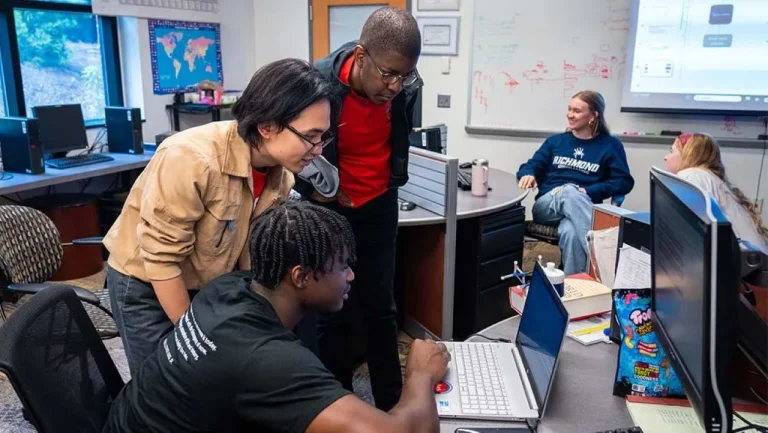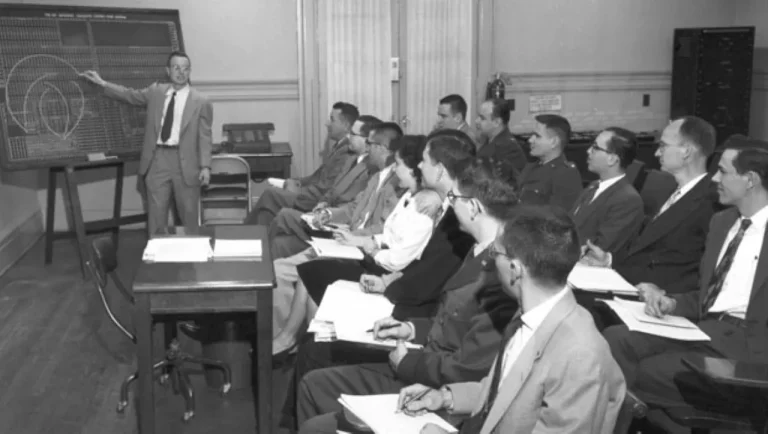The Ultimate Guide To Forensic Science Internships For High School Students
Forensic science has become an increasingly popular field, thanks in large part to its glamorization in movies and TV shows. For high school students interested in forensic science, internships can provide an inside look into this exciting career path.
If you’re short on time, here’s a quick answer to your question: High school students can find forensic science internships at crime labs, medical examiner’s offices, police departments, universities, and more.
These opportunities allow students to learn hands-on skills, network with professionals, and gain experience to boost college applications.
In this comprehensive guide, we’ll cover everything you need to know about forensic science internships as a high school student, including what they entail, where to find them, how to apply, and how to make the most of the experience.
What Do Forensic Science Internships For High School Students Involve?
Forensic science internships for high school students provide a unique opportunity to gain hands-on experience in the fascinating field of forensic science. These internships offer a glimpse into the real-world work of forensic professionals and allow students to explore various aspects of the field.
Here are some key components of what these internships involve:
Working alongside forensic science professionals
During their internship, high school students have the chance to work alongside experienced forensic science professionals. This provides a valuable learning experience as students can observe and learn from experts in the field.
Working alongside professionals allows students to gain insight into the day-to-day responsibilities and challenges faced by forensic scientists.
Observing autopsies and crime scene investigations
One of the most exciting aspects of forensic science internships is the opportunity to observe autopsies and crime scene investigations. Students may be allowed to witness these procedures under the supervision of professionals, enabling them to understand the meticulous processes involved in determining cause of death and collecting evidence at crime scenes.
Assisting in lab tests like DNA analysis and fingerprint examination
Interns may also have the chance to assist in various lab tests, such as DNA analysis and fingerprint examination. This hands-on experience provides students with a deeper understanding of the technical aspects of forensic science and allows them to contribute to ongoing research and investigations.
Learning proper evidence collection and documentation techniques
Internships also focus on teaching students proper evidence collection and documentation techniques. This includes learning how to handle and preserve evidence, as well as maintaining detailed records and chain of custody.
These skills are essential for maintaining the integrity of evidence in criminal investigations.
Attending court hearings and trials with forensic experts
Another valuable aspect of forensic science internships is the opportunity to attend court hearings and trials with forensic experts. This allows students to see how the evidence they have helped collect and analyze is presented in a legal setting.
It provides insight into the role of forensic science in the justice system and the importance of accurate and reliable scientific evidence.
Shadowing forensic anthropologists, toxicologists, firearms examiners, etc.
Forensic science internships often involve the opportunity to shadow professionals specializing in various fields, such as forensic anthropology, toxicology, firearms examination, and more. This exposure to different disciplines within forensic science allows students to explore their interests and gain a broader understanding of the field.
Participating in mock crime scene and disaster response scenarios
Interns may also participate in mock crime scene and disaster response scenarios. These simulations provide a hands-on experience in processing a crime scene or responding to a disaster situation. It helps students develop critical thinking skills, teamwork, and problem-solving abilities that are essential in the field of forensic science.
Developing research, writing, and presentation skills
Forensic science internships for high school students also focus on developing important skills such as research, writing, and presentation skills. Interns may be required to conduct independent research projects, write reports, and present their findings to professionals in the field.
These skills are valuable not only in forensic science but also in various other academic and professional pursuits.
Where Can High School Students Find Forensic Science Internships?
High school students who are interested in pursuing a career in forensic science may be wondering where they can find internships in this field. Fortunately, there are several options available. Here are some places where high school students can look for forensic science internships:
Local, state, and federal crime labs
Local, state, and federal crime labs are excellent places for high school students to gain hands-on experience in forensic science. These labs are responsible for analyzing evidence collected from crime scenes and helping law enforcement agencies solve crimes.
Students can learn about forensic techniques such as fingerprint analysis, DNA testing, and ballistics. It is recommended to check the websites of these crime labs or contact them directly to inquire about internship opportunities.
Medical examiner and coroner’s offices
Medical examiner and coroner’s offices are another great option for high school students interested in forensic science internships. These offices are responsible for determining the cause and manner of death in cases involving suspicious deaths.
Interning at a medical examiner or coroner’s office can provide students with exposure to autopsies, toxicology analysis, and forensic pathology. Students can reach out to these offices and inquire about internship programs or shadowing opportunities.
Local police and sheriff’s departments
Local police and sheriff’s departments often have forensic science units that investigate crimes and process evidence. These departments may offer internships to high school students interested in forensic science.
Interns may assist with evidence collection, crime scene documentation, and evidence analysis. Students can contact their local police or sheriff’s department to inquire about internship opportunities.
Major hospitals and trauma centers
Major hospitals and trauma centers may also offer forensic science internships to high school students. These facilities often have forensic pathology departments that conduct autopsies and analyze the cause of death.
Interning at a hospital or trauma center can provide students with exposure to forensic pathology, toxicology, and other aspects of forensic science. Students can contact hospitals in their area to inquire about internship programs.
University forensic science programs
Many universities with forensic science programs offer internships to high school students. These programs are designed to provide students with a comprehensive understanding of forensic science through coursework and hands-on experiences.
Interning at a university forensic science program can be a great way to gain valuable knowledge and skills in the field. Students can explore the websites of universities with forensic science programs to find internship opportunities.
State and national forensic science organizations
State and national forensic science organizations, such as the American Academy of Forensic Sciences (AAFS), may offer internship programs for high school students. These organizations promote the advancement of forensic science and provide resources for professionals in the field.
Interning with a forensic science organization can provide students with networking opportunities and exposure to various forensic disciplines. Students can visit the websites of these organizations to learn more about internship opportunities.
Private forensic investigation firms
Private forensic investigation firms may also offer internship programs for high school students. These firms specialize in providing forensic services to law enforcement agencies, attorneys, and other clients.
Interning at a private forensic investigation firm can provide students with exposure to real-world forensic casework and techniques. Students can reach out to these firms and inquire about internship opportunities.
It’s important for high school students to keep in mind that internships in forensic science may have specific requirements or restrictions, such as age restrictions or the need for a background check.
Therefore, it’s essential to thoroughly research and inquire about these opportunities to find the best fit.
What Are The Requirements For High School Forensic Science Internships?
Securing a forensic science internship in high school requires meeting certain requirements. These requirements ensure that students have the necessary skills, knowledge, and commitment to excel in the field. Below are the key requirements for high school forensic science internships:
Junior or senior standing
Most forensic science internships are available to students who are in their junior or senior year of high school. This is because these grades demonstrate that students have already completed a significant portion of their high school coursework, including core science and math classes.
Strong grades, especially in science and math
Having strong grades, particularly in science and math, is often a requirement for high school forensic science internships. This is because forensic science involves complex scientific concepts and analytical skills.
Demonstrating proficiency in these subjects shows the intern coordinator that you have the academic foundation necessary to succeed in the internship.
Teacher or counselor recommendation
A recommendation from a teacher or school counselor is typically required for high school forensic science internships. This recommendation serves as a testament to your character, work ethic, and passion for the field.
It’s important to build strong relationships with your educators to secure a compelling recommendation.
Relevant extracurriculars like science club or robotics
Participating in relevant extracurricular activities, such as science clubs or robotics teams, can strengthen your application for a forensic science internship. These activities demonstrate your interest in science and technology and show that you actively seek out opportunities to further your knowledge and skills in these areas.
Passion for forensic science and criminal justice
A genuine passion for forensic science and the criminal justice system is highly valued in internship candidates. This can be demonstrated through personal statements, essays, or interviews. Sharing your enthusiasm for the field and explaining how you envision making a difference can set you apart from other applicants.
Ability to pass a background check
Due to the sensitive nature of forensic science work, interns are often required to pass a background check. This ensures that individuals with a criminal history or questionable background are not granted access to confidential information or evidence.
Having a clean record is crucial for obtaining a forensic science internship.
Adherence to confidentiality rules
Forensic science work involves handling confidential information and evidence. Therefore, interns must have a strong understanding of and commitment to confidentiality rules. This includes not discussing case details outside of authorized personnel and maintaining the utmost professionalism and discretion at all times.
Proof of vaccinations
Proof of vaccinations may be required to ensure the safety of interns working in forensic science labs or other related environments. Vaccinations protect against potential health risks and ensure a safe working environment for everyone involved.
It’s important to have up-to-date immunization records when applying for a forensic science internship.
Transportation to the site
Being able to transport yourself to the internship site is essential. Most high school forensic science internships are not remote and require students to commute to a physical location. Whether it’s arranging transportation with a parent, carpooling, or using public transportation, having a reliable means of getting to the site is necessary.
How Should High School Students Apply For Forensic Science Internships?
Applying for forensic science internships can be an exciting opportunity for high school students to gain hands-on experience in this fascinating field. Here are some tips on how to navigate the application process:
Look for opportunities in early spring of junior year
It’s never too early to start planning for a forensic science internship. High school students should begin their search in the early spring of their junior year. This will allow them enough time to research and apply for various programs before the deadlines.
Contact institutions directly to ask about application process
One of the best ways to find out about available internship opportunities is by directly contacting institutions such as forensic laboratories, crime scene investigation units, or even local law enforcement agencies. Reach out to them via email or phone to inquire about their application process.
Follow all instructions closely and submit completed application on time
When applying for an internship, it is crucial to carefully read and follow all the instructions provided by the institution. Pay close attention to deadlines and make sure to submit a completed application on time.
Missing deadlines or failing to follow instructions may result in your application being disregarded.
Emphasize academic achievements, science/tech skills, and career interests in application
Highlighting your academic achievements, especially in science-related subjects, and demonstrating your technical skills will greatly enhance your chances of being selected for an internship. Additionally, it is important to express your passion for forensic science and how an internship aligns with your career interests.
Provide resume, cover letter, recommendation letters if required
Some internship programs may require you to submit additional documents such as a resume, cover letter, or recommendation letters. Take the time to prepare these documents in advance and ensure they showcase your relevant skills, experiences, and qualifications.
Be prepared for one or more interviews
Internship programs often conduct interviews as part of their selection process. Be prepared to answer questions about your interest in forensic science, your academic background, and any relevant experiences you may have.
Practice your interview skills beforehand to increase your confidence and make a positive impression.
Follow up post-interview with thank you notes
After the interview, it is a good practice to send a thank you note to the interviewer or the institution. This shows professionalism and gratitude for the opportunity. It also leaves a positive impression and may enhance your chances of being selected for the internship.
By following these guidelines, high school students can increase their chances of securing a forensic science internship and gaining valuable experience in this exciting field.
How Can High Schoolers Make The Most of a Forensic Science Internship?
Forensic science internships offer high school students a unique opportunity to gain hands-on experience in a field that is both fascinating and in-demand. To make the most of this valuable experience, there are several strategies that students can employ:
Ask thoughtful questions of supervisors and staff
Don’t be afraid to ask questions during your internship. Supervisors and staff members are there to guide and mentor you, so take advantage of their expertise. Ask them about the specific techniques and methods they use, the challenges they face, and any advice they have for aspiring forensic scientists.
By showing genuine curiosity, you can deepen your understanding of the field and make a memorable impression.
Take initiative to get involved in activities
Internships are not just about observing; they are also an opportunity to actively participate. Take the initiative to get involved in activities, whether it’s assisting with evidence collection, analyzing data, or conducting experiments.
By actively engaging in the work, you will gain a deeper understanding of the practical aspects of forensic science and demonstrate your enthusiasm and dedication.
Keep an internship journal detailing experiences and lessons learned
Keeping a journal throughout your internship can be invaluable. Take notes on the tasks you perform, the challenges you encounter, and the lessons you learn. This will not only help you reflect on your experiences but also serve as a valuable resource for future reference.
Additionally, a well-documented internship journal can be a great addition to your college applications or future job interviews.
Build relationships with professionals; use them as future references
Networking is a crucial aspect of any internship. Take the time to build relationships with the professionals you encounter during your internship. Connect with them on professional networking platforms and stay in touch even after the internship ends.
These connections can be invaluable when it comes to future job opportunities or recommendations for college applications.
Look for projects to take ownership over and add value
Don’t just wait for tasks to be assigned to you; instead, actively seek out projects that you can take ownership of. This could involve conducting independent research, proposing innovative solutions to problems, or contributing to ongoing projects.
By taking initiative and adding value, you will not only make a positive impression but also develop important skills that will benefit you in your future career.
Clarify if intern work can be used as a writing sample for college apps
If you’re planning to apply to college, it’s worth clarifying with your supervisor if your internship work can be used as a writing sample. This can be a great opportunity to showcase your abilities and demonstrate your passion for forensic science.
Having a strong writing sample can set you apart from other applicants and increase your chances of admission.
Observe closely to gain insights about various forensic science careers
During your internship, take the opportunity to observe closely the various forensic science careers within the organization. Pay attention to the roles and responsibilities of different professionals, such as crime scene investigators, forensic toxicologists, and DNA analysts.
This will give you a broader understanding of the field and help you make more informed decisions about your future career path.
Practice professionalism in appearance, conduct, communication, etc.
Professionalism is key to making a positive impression during your internship. Dress appropriately, maintain a positive attitude, and communicate effectively with supervisors and colleagues. Show respect for the work environment and adhere to any rules or regulations set forth by the organization.
By demonstrating professionalism, you will be seen as a reliable and trustworthy intern.
Get supervisor feedback regularly to improve skills
Regular feedback from your supervisor is crucial for your growth and development as an intern. Actively seek feedback on your performance, strengths, and areas for improvement. Use this feedback to enhance your skills and make the most of your internship experience.
By showing a willingness to learn and grow, you will leave a lasting impression on your supervisor and increase your chances of future success in forensic science.
Conclusion
Forensic science internships provide invaluable hands-on learning and career development opportunities for curious high school students. By interning with medical examiners, crime labs, police departments, and other groups, students gain technical skills, content knowledge, professional connections, and experiences that can shape their college and career trajectories.
With some research and preparation, motivated high schoolers can find internships to launch their forensic science journeys.
The key next steps are identifying organizations that take high school interns, meeting eligibility criteria, submitting strong applications, and making the most of accepted opportunities. With passion and diligence, an internship can open doors into the dynamic world of forensic criminalistics.







